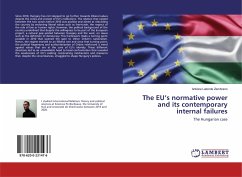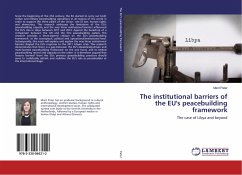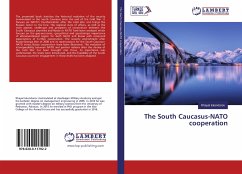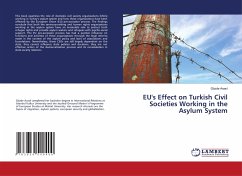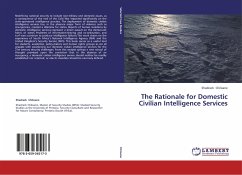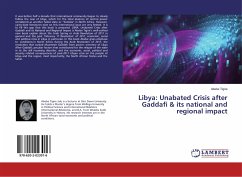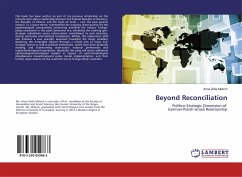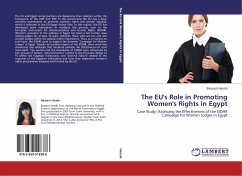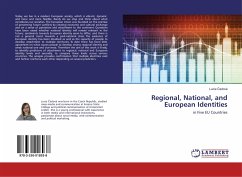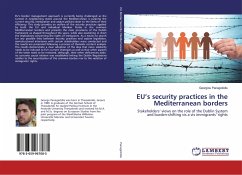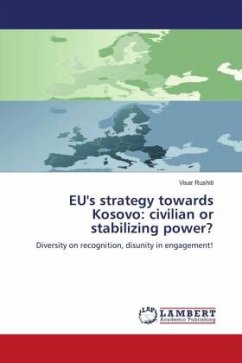
EU's strategy towards Kosovo: civilian or stabilizing power?
Diversity on recognition, disunity in engagement!
Versandkostenfrei!
Versandfertig in 6-10 Tagen
32,99 €
inkl. MwSt.

PAYBACK Punkte
16 °P sammeln!
This publication is the product of one year work/research for the purpose of completion of the Master Thesis "EU's strategy towards Kosovo: civilian or stabilizing power?" It looks at EU's approach over Kosovo from 1999 to 2008. June 1999 marks the end of the war in Kosovo while in 2008 Kosovo declared independence, and EU launched its Rule of Law mission in Kosovo and mandated its Special Representative to implement the EU policy objectives in Kosovo. Furthermore, it looks at EU engagement in Kosovo during this period while sheds light whether EU towards Kosovo is a civilian, a normative or a...
This publication is the product of one year work/research for the purpose of completion of the Master Thesis "EU's strategy towards Kosovo: civilian or stabilizing power?" It looks at EU's approach over Kosovo from 1999 to 2008. June 1999 marks the end of the war in Kosovo while in 2008 Kosovo declared independence, and EU launched its Rule of Law mission in Kosovo and mandated its Special Representative to implement the EU policy objectives in Kosovo. Furthermore, it looks at EU engagement in Kosovo during this period while sheds light whether EU towards Kosovo is a civilian, a normative or a stabilizing power. Depending on how much uniqueness is found among EU member states towards Kosovo (and Western Balkans), intergovernmentalism and supranationalism as two different theoretical approaches come into play. Following independence, EU in Kosovo is characterized by a dual approach: peace-building and institution building. The former is mandated by the intergovernmental side of the EU, Council of the European Union, while the latter is mandated by the supranational side of the EU, European Commission.



